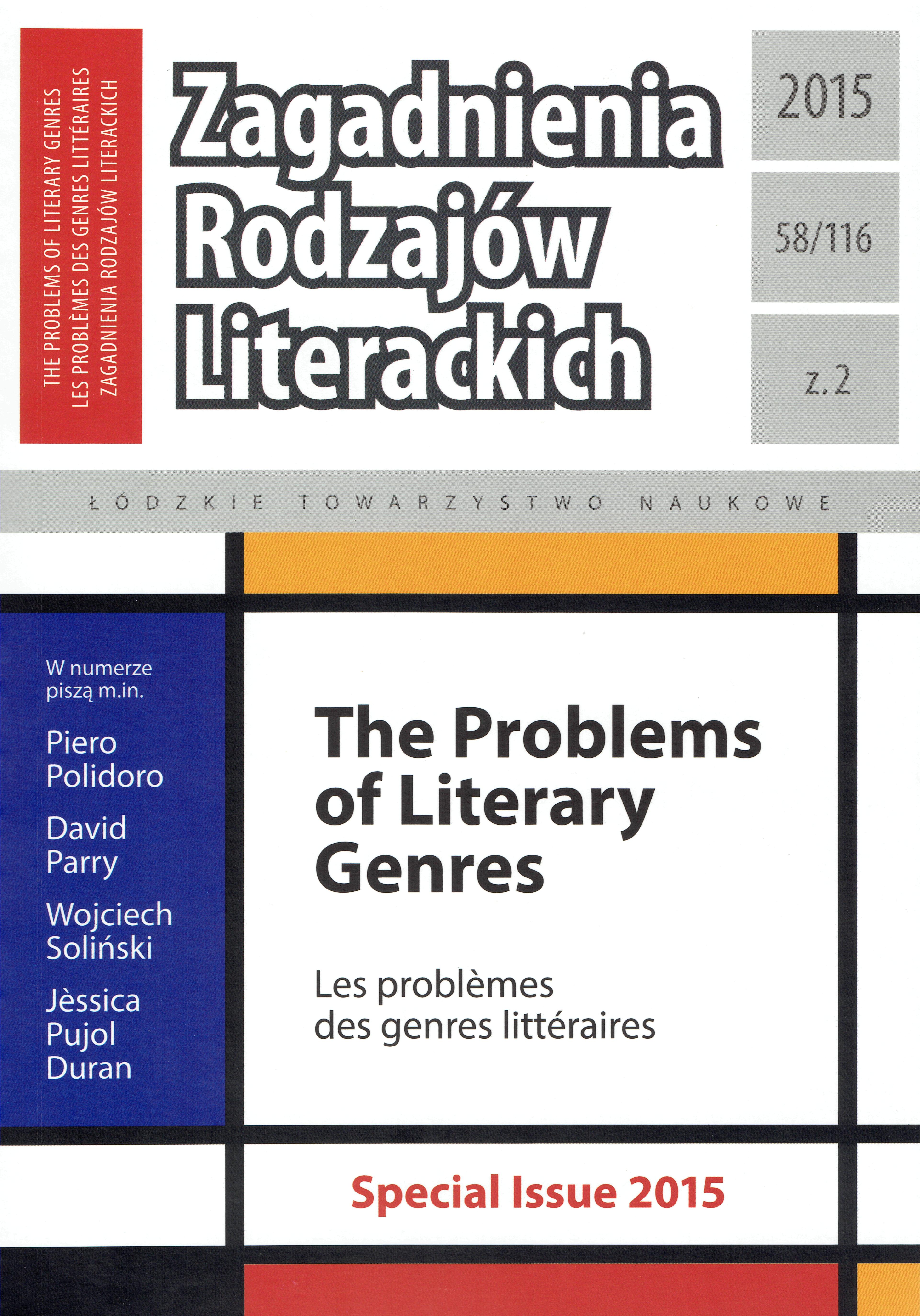Umberto Eco’s New Paradigm and Experimentalism in the 1960s
Umberto Eco’s New Paradigm and Experimentalism in the 1960s
Author(s): Jèssica Pujol DuranSubject(s): Language and Literature Studies, Theoretical Linguistics, Studies of Literature
Published by: Łódzkie Towarzystwo Naukowe
Keywords: Experimentalism; new paradigm; Umberto Eco; open work; model reader; 1960s
Summary/Abstract: In this paper I analyse the results of a paradigmatic shift in the history of experimental writing. Drawing from the historiographical structure of natural sciences proposed by Thomas S. Kuhn in The Structure of Scientific Revolutions (1962), I read Umberto Eco’s theory of the ‘open work’ as a narrativisation of that shift or ‘change of paradigm’. In The Open Work (1962) Eco reads James Joyce’s Ulysses (1922) as a watershed for Western history. Joyce’s writing, according to Eco, offered a successful response to the European context of the 1920s that would change the experience of reading and writing forever, as well as the understanding of literary experimentation. This Joycean shift becomes apparent in the 1960s, when experimental publications by authors such as Italo Calvino, Julio Cortázar, B. S. Johnson and Georges Perec indicate that something characteristic was shared under this new paradigm; something that I call an experimentalism.
Journal: Zagadnienia Rodzajów Literackich
- Issue Year: 58/2015
- Issue No: 2
- Page Range: 51-61
- Page Count: 11
- Language: English

